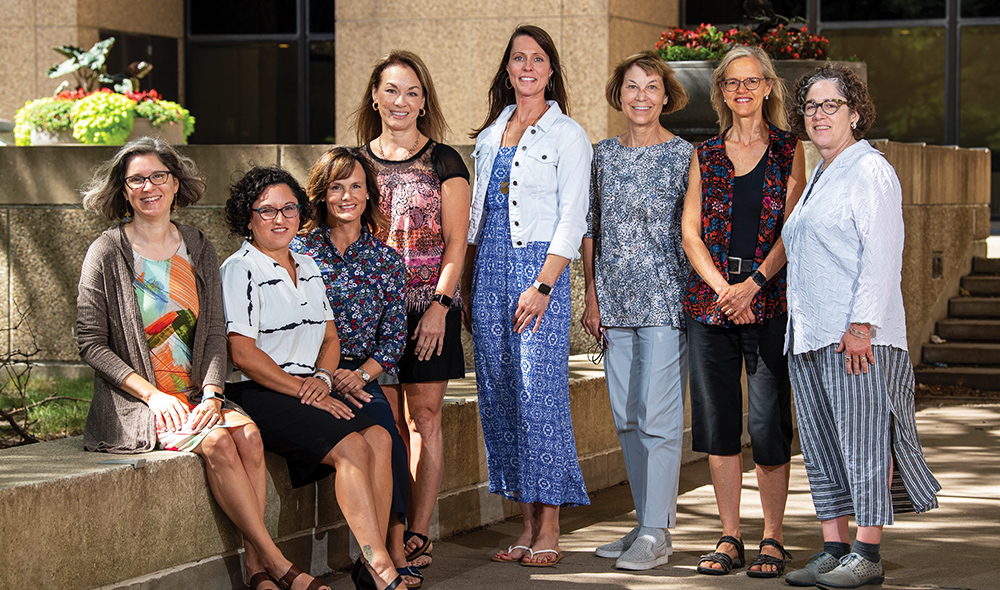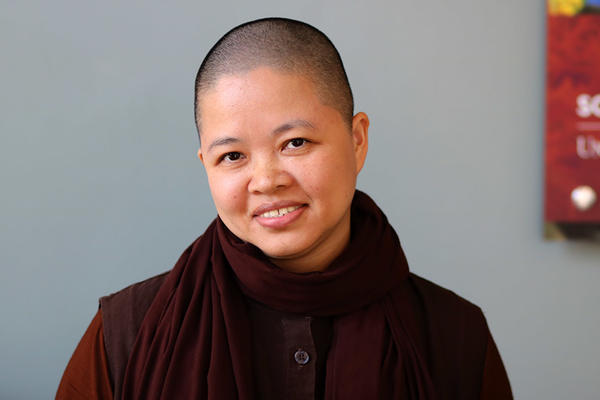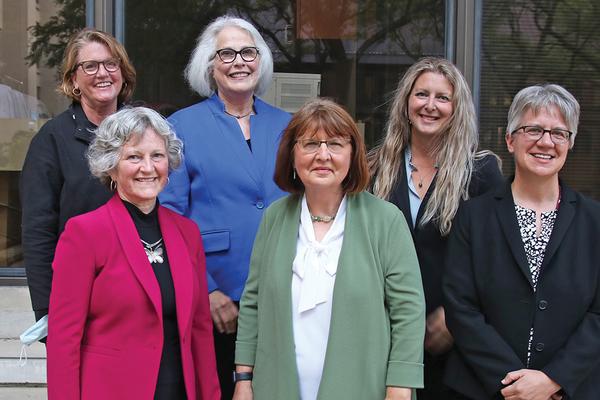AACN Essentials call for transforming nursing curriculum
New curricular framework uses competency-based approach
October 25, 2022
Brett Stursa

The Bachelor of Science in Nursing, Master of Nursing and Doctor of Nursing Practice subcommittees are transforming the curriculum to reflect the AACN Essentials.
Faculty are leading an effort at the School of Nursing to transform baccalaureate, master’s, and Doctor of Nursing Practice curricula to reflect the new American Association of Colleges of Nursing (AACN) The Essentials: Core Competencies for Professional Nursing Education. The new model and framework for nursing education uses a competency-based approach. The Essentials introduces 10 domains and the expected competencies for each domain that represent professional nursing practice and reflect the diversity of practice settings.
“The AACN Essentials provides a lens through which to see nursing education structured by competencies. This view is supporting our examination and thoughtful evaluation of every course within every academic program,” says Associate Professor Anne Chevalier McKechnie, PhD, RN, chair of Education Policy and Curriculum Committee. “The good news is that overall, our current courses appear to address most of the competencies. Our ongoing work will ensure that we are meeting and exceeding the goals to support student competencies. We have the opportunity to go above and beyond by bringing in our strengths to provide an exceptional education. For example, competencies can be met and built on further in areas of informatics and public health, and we can thread content on inclusivity, diversity and equity as well as planetary health throughout the courses in the programs. Our students will be better prepared to lead and change health care for the future.”
The school created three subcommittees, one for each academic program, to transform the current curriculum to reflect the AACN Essentials. The subcommittees have identified courses that may get revised, eliminated or added and will be presenting revised program plans to faculty. They expect to have curriculum changes fully implemented by the fall of 2024 deadline.
Ultimately, the move to a competency-based framework makes assessments more crucial and more intentional. “The biggest challenge for all schools of nursing in this country is to be very intentional about our assessments of competency,” says Christine Mueller, PhD, RN, FGSA, FAAN, senior executive associate dean for academic programs.
Mueller added that the school expects to engage its practice partners more intentionally to ensure graduates are practice-ready. “As we are transforming our three curricula to be intentionally competency based, we will consult with our practice partners to ensure they are aware of what’s going on and provide feedback,” says Mueller.


